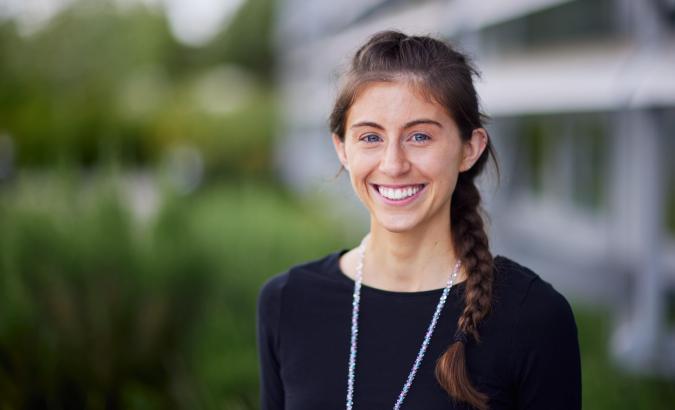Chloe joined Research Complex as a doctoral candidate in 2020 with the Beis Group. This week as she comes to the end of her PhD, she shared with us the highs and lows of the experience, as well as her advice for aspiring researchers.
Where did your interest in Science come from?
My interest stemmed from my natural curiosity to explain the unexplainable, such as the realms of life and evolution. Science is the one subject that provides an explanation for the natural world and its phenomena surrounding us, and so it enables me to answer complex questions that satisfy my curiosity.
My passion to study science came from my biology and chemistry classes at high school, where I learned that experimenting and hypothesis testing provides evidence-based answers to multifaceted questions, and from then on, my passion for science blossomed.
Have you benefited from mentorship in your research so far?
During the early stages of my PhD, several post-docs in my lab group played a vital role in teaching me the techniques that were going to form part of my daily work in the lab. They helped me troubleshoot research challenges by sharing their own knowledge and experiences, which helped me navigate through times in my PhD that were tricky. They provided me with constructive feedback which improved the quality of my research and as a result, progressed my personal development.
Can you briefly describe your PhD project, has this changed since you started?
My PhD focused on outer membrane proteins that are involved in bacterial conjugation, a process by which bacteria exchange genetic material between each other. This process is important in terms of antibiotic resistance, since bacteria use conjugation to transfer antibiotic resistance genes.
My PhD was in structural biology, and so I used both X-ray crystallography and Cryo-EM to solve the structures of outer membrane proteins. The initial core objectives of my PhD did not change much from when I started back in 2020, but my projects progressed further than expected, which resulted in exciting discoveries and several collaborations.
What advice would you give to someone applying for a PhD?
My advice would be to make sure that you are only applying for PhDs that strongly align with your research interests. A PhD is a challenging yet rewarding academic journey which is driven by genuine curiosity and passion, and so it is important that you specialise in an area that you have a genuine drive for. It is important to research the supervisors of the PhDs that you are applying for as this gives an insight into the level of expertise of the lab group that you will be in, and the resources and facilities that will be available to you.
Another piece of advice I would give is to network with people that are already in the academic community, to get a broader perspective on the current research landscape and the current research trends. Talking to current PhD students can provide valuable insider information on what life is like as a PhD student and what expectations and challenges you can expect to face along the way.
You started your PhD in 2020 at the height of the pandemic, what effect did this have on your work?
During the pandemic there were restrictions on the number of people that were allowed to work in the lab simultaneously, leading to the implementation of a rota system. This meant that specific time slots had to be assigned for accessing the RCaH, and so I couldn't come in for five consecutive days, which affected the progression of my work. This limited the amount of support that was available to me in the laboratory, however it also provided an opportunity for me to become more independent and think for myself during that period.
What do you think could be the key developments in your field over the next 5-10 years?
One key development that has already affected my PhD is artificial intelligence. The AI system AlphaFold has helped in deriving accurate models of proteins which I have worked on, which as a result, helped with structure determination. I think scientists will become more and more dependent on AI over time and will use it as a guide for experimental studies. As someone who specialised in Cryo-EM during my PhD, I believe Cryo-EM will continue to rapidly evolve with constant advancements in software and will become the number one technique for structure determination within the next 10 years.
To discover more about Chloe’s research in structural biology you can read her recent paper in Structural Biology Communications here.


